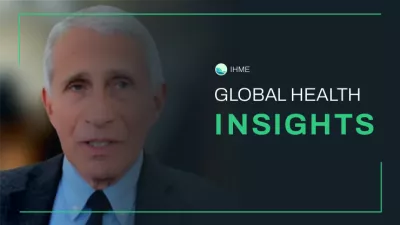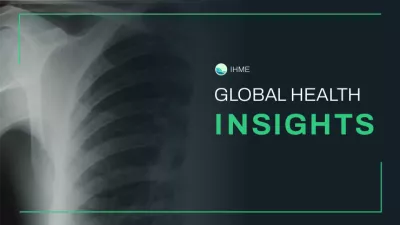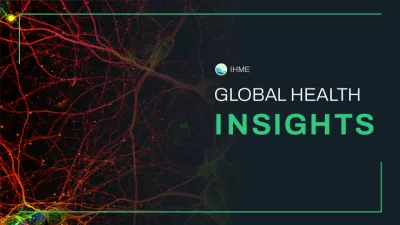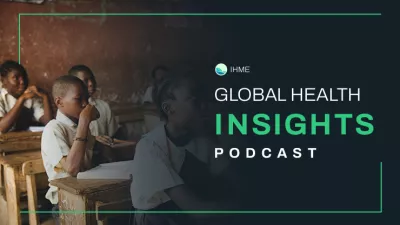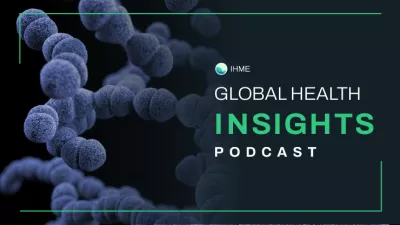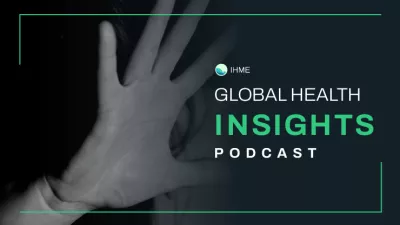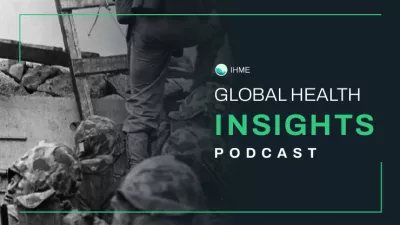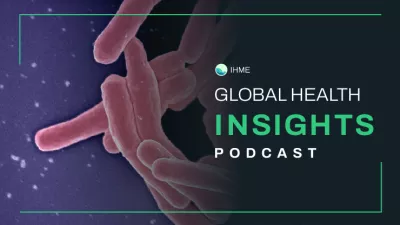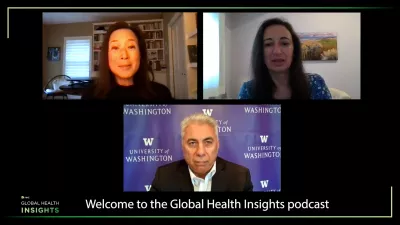Global Health Insights
Dive into the latest trending topics in global health with IHME’s Global Health Insights blog. Our health researchers explain the significance of new studies, share data related to current events, and help you understand the story behind the numbers.Disparities in disease burden between males and females
Males and females have unique health concerns that grow over time. Females show higher rates of health loss from conditions including depressive disorders, anxiety, Alzheimer’s and other dementias. Males show higher rates of health loss from cardiovascular, respiratory, and liver diseases.
Q&A: How did the COVID-19 pandemic impact lower respiratory infection burden?
Measures to slow the spread of COVID-19 also worked to prevent other lower respiratory infections, like influenza and RSV. IHME Associate Professor Dr. Hmwe Hmwe Kyu shares new findings from the Global Burden of Disease study.
Why PEPFAR matters, with Dr. Anthony Fauci
PEPFAR has saved more than 25 million lives and provides funding for AIDS treatment and education programs across Africa and into Asia and the Americas. But the President’s Emergency Plan for AIDS Relief faces new uncertainty in terms of long-term financial support.
Q&A: Preparing for a low-fertility future
By 2050, more than three-quarters of countries will not have fertility rates high enough to sustain population size over time. Dr. Austin Schumacher shares the latest Global Burden of Disease findings on past and future trends in global fertility.
Q&A: Ending tuberculosis
Despite concerted efforts, global milestones to end TB by 2020 were not met. Dr. Hmwe Hmwe Kyu shares the latest data on tuberculosis eradication.
Q&A: The global burden of nervous system disorders
In 2021, nervous system disorders like Alzheimer's disease, stroke, and epilepsy affected 40% of the population. Researcher Jaimie Steinmetz shares the latest findings from IHME's GBD study.
Introducing GBD 2021
IHME Director Dr. Christopher Murray discusses what makes the Global Burden of Disease Study (GBD) unique as the most comprehensive effort to measure health trends and why GBD remains more relevant than ever.
Q&A: Introducing GBD 2021
IHME Director Dr. Christopher Murray discusses what makes the Global Burden of Disease Study (GBD) unique as the most comprehensive effort to measure health trends and why GBD remains more relevant than ever.
BMI is a key health metric
IHME Director Chris Murray explains the research linking high BMI to dozens of health issues, including cardiovascular disease, diabetes, and cancer.
More education can lead to a longer life
Dr. Mirza Balaj shares findings from a new study showing that the risk of death decreases by about 2% per year of education.
Antimicrobial resistance in Africa
The overall takeaway from the paper is that bacterial antimicrobial resistance, or AMR, is not just a problem for high-income countries, or countries with really high antibiotic consumption.
Q&A: Burden of Proof - intimate partner violence & childhood sexual abuse
The negative health effects associated with intimate partner violence and childhood sexual abuse are presented in a new Burden of Proof analysis published in Nature Medicine.
Conflict and health
How do war and conflict impact populations' health? This Veterans Day, Dr. Chris Murray reflects on both the physical and mental trauma of war on veterans, as well as the effects of conflict on civilians and health systems.
The state of tuberculosis
Despite several decades of global attention and investment, progress on tuberculosis (TB) hasn't been keeping up with other focus areas like HIV and malaria.
How well did your country recover from the pandemic?
Dr. Emmanuela Gakidou and Dr. Ali Mokdad discuss the results from our new Pandemic Recovery Survey, showing the health and wellness of 21 countries following the pandemic.


